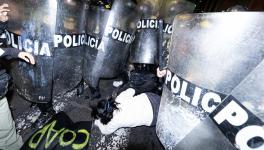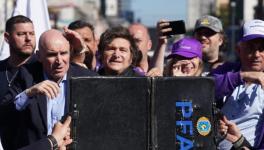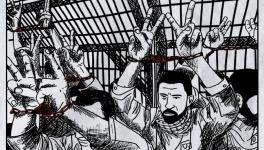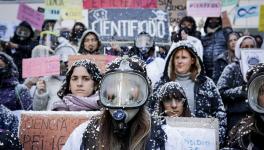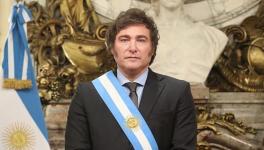Thousands Marched in Argentina For Human Rights and Against State Violence 42 Years After the Bloodiest Coup in its History
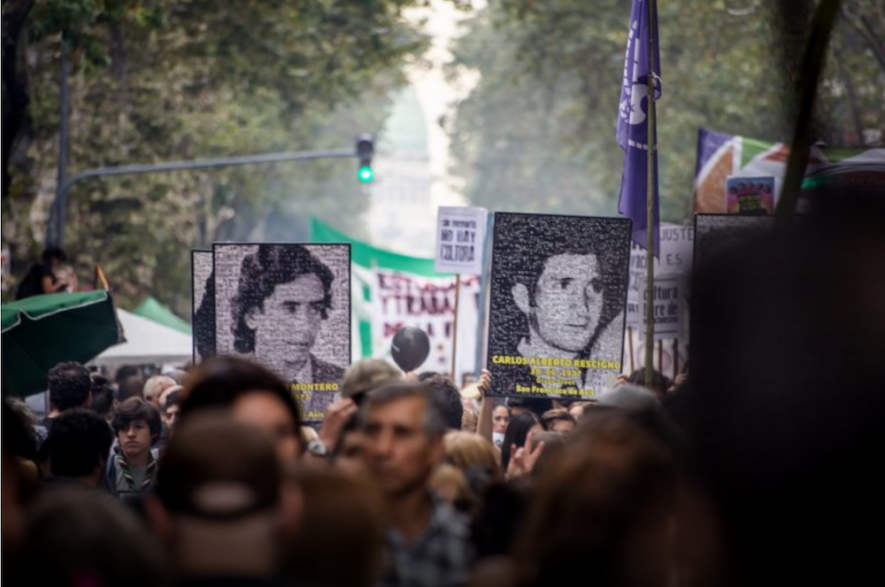
Image Courtesy: Marcha Noticias
Like every year since the end of the dictatorship that murdered thousands between 1976 and 1983, Argentinians took to the streets on the anniversary of the military coup (March 24) to support the struggle for human rights—a struggle to demand justice for the unpunished crimes of the dictatorship and for the state violence that still exists today.
As usual, this massive demonstration was attended by diverse social and cultural organizations, and political organizations and parties ranging from the center to the left of the spectrum—from Kirchnerism and Peronism to socialists and communists.
The annual march is organized by the Meeting for Memory, Truth and Justice (Encuentro Memoria, Verdad y Justicia), which is made up of over 300 organizations, including the world famous Mothers and Grandmothers of Plaza de Mayo, who fight for “memory, truth and justice” for their sons and daughters kidnapped and murdered by the dictatorship, and for the restitution of their grandchildren who were illegally given up for adoption.
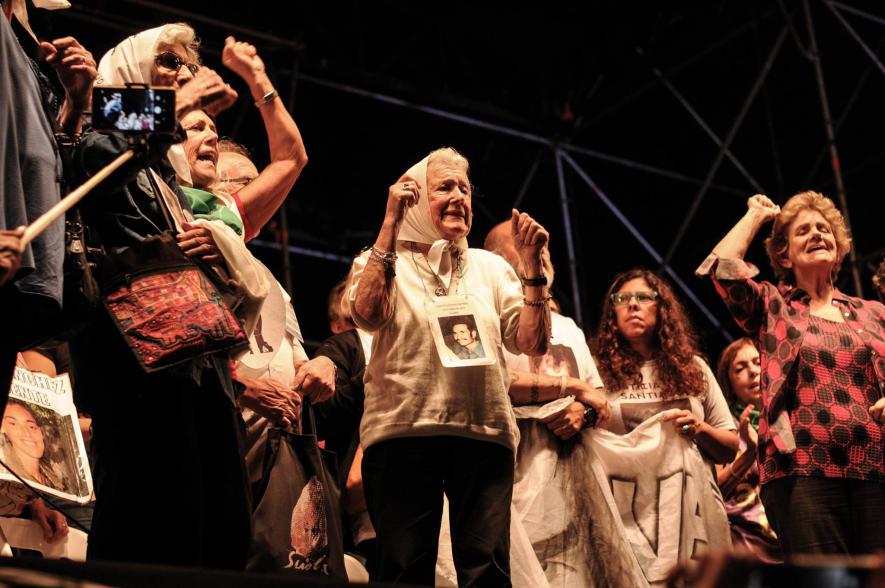
The Mothers of Plaza de Mayo. Photo Credit: Marcha Noticias
The biggest march takes place in the capital, Buenos Aires, but there are many more around the entire country—in the cities of Mar del Plata, Bahía Blanca, Córdoba and Rosario to name a few.
A document was read out loud at the end of the march, stating all of the demands of the Argentinian human rights movement as of March 2018.
First of all, the goal is to “repudiate the bloodiest dictatorship in the history of Argentina”, and to homage the 30 thousand people that were illegally detained and whose bodies disappeared, and “uphold their dreams for a country without oppression nor exploitation”.
Secondly, to “stand against the government of Mauricio Macri and his accomplices”, who try to “erase the genocide from our collective memory and use repression and police executions to impose their plan” of adjustment and submission to international capitalism and imperialism.
The march also denounced the government’s plan to release hundreds of men who participated in crimes during the dictatorship, the forced disappearance and death of Santiago Maldonado during a police raid on Mapuche territory, the police execution of Rafael Nahuel and 11-year-old Facundo Ferreyra. As well as the repression of public demonstrations that oppose the government’s unpopular policies, the dozens of political prisoners and persecuted people, and the “Chocobar doctrine”—by which a judge ruled that Luis Chocobar, a policeman who shot a thief in the back, killing him, was acting in “legitimate defense”.
Reflecting the diversity of the movement, despite the presence of Kirchnerista organizations at the march, the official document also criticized the previous government, under president Cristina Fernández de Kirchner. for passing the “Anti-terrorist” laws that are used to persecute those who protest.
The march is also committed to internationalism, and took a stance against the political imprisonment of Ahed Tamimi, condemned the murder of Brazilian black LGBT congresswoman Marielle Franco, repudiated the Turkish massacre of Kurds in Afrin, honored Alina Sánchez, the Argentine doctor who joined the Kurdish YPG and died last week, and saluted the revolt of the people of Peru and the fall of President Kuczynski
Photos by Ayelen Rodriguez, Joaquin Penna, Julieta Dorin, Camila Parodi, Ramiro Smith, Juan Noy and Julieta Lopresto Palermo from Marcha Noticias
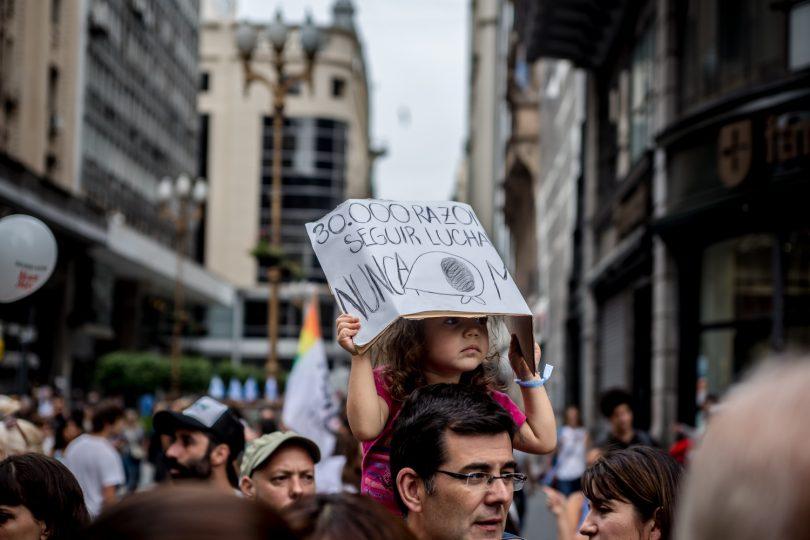
30,000 reasons to continue fighting. Never again!
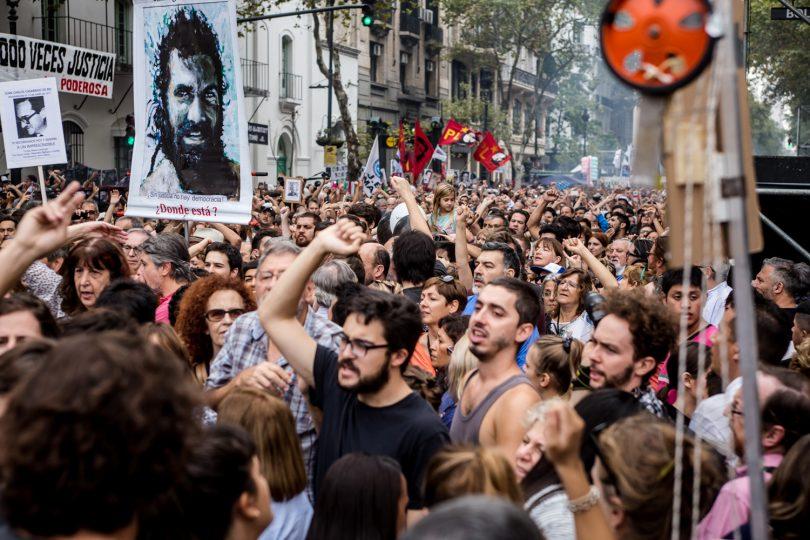
Banner with Santiago Maldonado, who was disappeared in August when the police attacked Mapuche territory. His body appeared in early October.
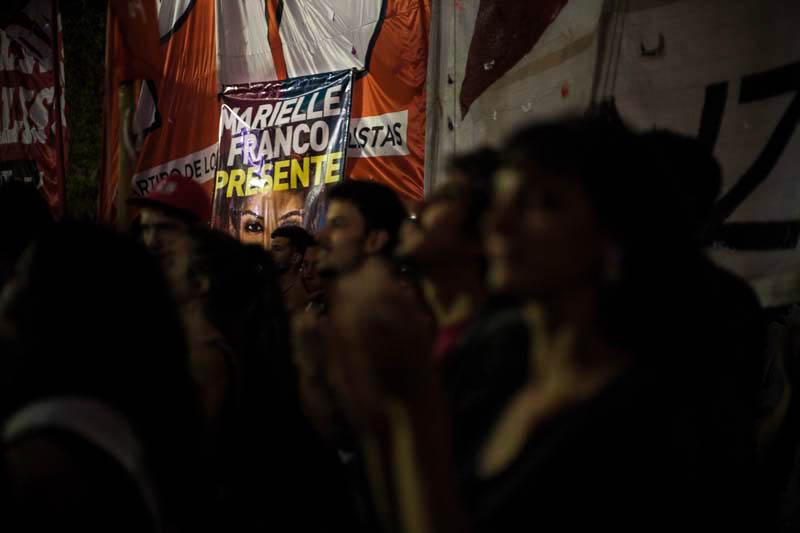
Marielle Franco Presente.
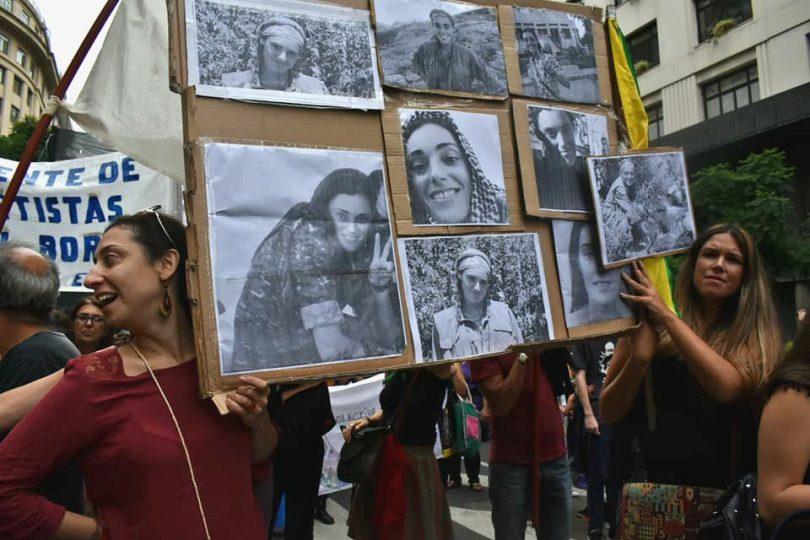
Argentinian internationalist Alina Sanchez who was killed in Kurdistan last week.
Disclaimer: The views expressed here are the author's personal views, and do not necessarily represent the views of Newsclick.
Get the latest reports & analysis with people's perspective on Protests, movements & deep analytical videos, discussions of the current affairs in your Telegram app. Subscribe to NewsClick's Telegram channel & get Real-Time updates on stories, as they get published on our website.













